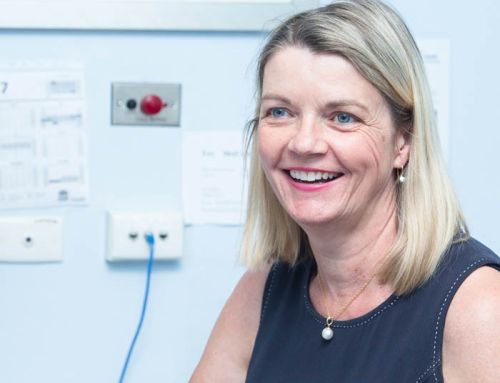ITTACc is ANZGOG’s phase II, randomised multi-centre non-comparative trial of sitravatinib in recurrent or metastatic cervical cancer that have progressed after standard therapies.
ANZGOG spoke with ITTACc Principal Investigator, Dr Jeffrey Goh, who explained the study and its efforts to improve life for women with cervical cancer.
 Dr Jeffrey Goh is a Senior Staff Medical Oncologist at the Royal Brisbane & Women’s Hospital and a Visiting Medical Oncologist at Greenslopes Private Hospital and ICON Chermside. He is also Chair of ANZGOG’s Cervical (Vaginal and Vulvar) Tumour Type Working Group.
Dr Jeffrey Goh is a Senior Staff Medical Oncologist at the Royal Brisbane & Women’s Hospital and a Visiting Medical Oncologist at Greenslopes Private Hospital and ICON Chermside. He is also Chair of ANZGOG’s Cervical (Vaginal and Vulvar) Tumour Type Working Group.
What is ITTACc?
ITTACc is a phase II trial of Tislelizumab in combination with sitravatinib for patients who have recurrent, persistent and/or metastatic cervical cancer, which has progressed on standard platinum-based chemotherapy with bevacizumab.
What does ITTACc hope to achieve?
The study hopes to achieve two things. First, to provide access to immunotherapy in a second line setting for patients. Secondly, it is testing the combination of immunotherapy with a targeted treatment called sitravatinib, to see if the combination works better than immune therapy alone. The aim is to give patients a greater chance at survival and hopefully improve their quality of life.
Patients with untreated metastatic cervical cancer will experience deterioration in function and quality of life, as their disease causes more problems as it progresses. The idea is to try and give those patients an option apart from palliative care, to hopefully extend their life and control the symptoms that cervical cancer may cause.
The study will involve testing patients’ tumours for any sort of biomarkers that may predict longer-term survival in response to immune therapy. It will identify a category, or a subset of patients, who will largely benefit from the treatment.
Explain the importance of translational research (TR-ANZGOG) with this study
TR-ANZGOG will be important in terms of finding out the molecular signatures and characteristics of the tumour that will predict its response to immune therapy or any new treatments. In addition, it will also inform us about any new targets there are for researchers to find new drugs to treat advanced cervical cancer. With biomarkers, we can find prognostic markers for cervical cancer.
The study is led in Australia, by Study Chair, Dr Jeffrey Goh. The study will be opening at sites across Australia, with ANZGOG incorporating its first Teletrial cluster in Queensland. Teletrials build on the telehealth model of delivering health care, providing a way to increase access to clinical trials for patients living in regional, rural and remote locations, reducing the disparity in patient outcomes for geographically dispersed populations. Incorporating a teletrial cluster into the ITTACc study will enable patients living in regional, rural and remote parts of Queensland to participate in the study closer to home.
Want to know more about ANZGOG’s clinical trials?
To find out more about ANZGOG’s clinical trials, click here.










